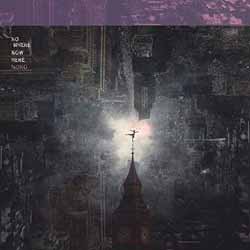|
Click here to return to the main site. Music Review
Pelagic Records releases Nowhere Now Here, by Japanese instrumental band MONO. Formed in 1999 in Tokyo, they have released 10 albums over the last 20 years. Traditionally a rock trio, the band has expanded to incorporate electronics and up to 30 orchestral instruments. A constant theme is the conflict and correlation between dark and light. The current line-up consists of Takaakira ‘Taka’ Goto (guitar/composer), Dham Majuri Cipolla (drums), Tamaki Kunishi (electronica/vocals), and Hideki ‘Yoda’ Suematsu (bass). The tracks are: 'God Bless'; 'After You Comes the Flood'; 'Breathe'; 'Nowhere, Now Here'; 'Far and Further'; 'Sorrow'; 'Parting'; 'Meet Us Where the Night Ends'; 'Funeral Song'; and 'Vanishing, Vanishing Maybe'... I must admit to never having come across MONO, even though it appears they have toured extensively all over the world. The band will probably be glad to hear that it’s difficult to compartmentalise them into any one genre. The only way I can describe it is to say it’s instrumental rock produced in a psychedelic cross-over, with orchestral concerto tendencies. Yes, I’m confused, too. However, it is different from the standard mainstream music directions, and I’m often intrigued by anything unusual. 'God Bless' is an atmospheric piece which serves as more of an intro to the body of the album. 'After You Comes the Flood' begins quietly and very subdued, but after a few minutes kicks in with a very nice moderate-paced but heavy theme. The drawback is that it doesn’t really go anywhere, it simply stays on an even keel and eventually fades away. I realise I described MONO as an instrumental band, but 'Breathe' is the first vocals they’ve tackled. In my opinion, they shouldn’t have bothered. It makes no impact, with no meat on the bones to hook you in (to mix metaphors). The structure here seems to be to alternate between quiet reflections and songs of building crescendos. 'Nowhere, Now Here' begins with a sort of echo acoustic or steel guitar sound which fades with noises, before heavy sound bursts in on the action. This would be a good track if it didn’t badly outstay its welcome at over 10 minutes. 'Far and Further' time-wastes with the same pattern, only coming to a semblance of life when the song is almost over. For me, the outstanding track is 'Sorrow'. Although it follows a similar direction it has real atmosphere and emotion, and wouldn’t be out of place as a main film soundtrack. There is an off-beat drum pattern which carries and drives the piece, and peripheral sounds touch your senses before they become more profound. 'Parting' begins with a nice piano piece, with string accompaniment. However, again, there is no progression. 'Meet Us Where the Night Ends' has the drums driving the music until the bass and ultra-reverb with overdriven guitar tries to take over – forcing the drums to ‘up’ their game. This one also has to be kicked out at closing time. 'Funeral Song' is much ado about nothing. At least 'Vanishing, Vanishing Maybe' doesn’t take an age to get going; it’s at the same moderate pace but at times sounds like it’s trying to emulate Pink Floyd for guitar atmosphere. This is an interesting album, which sounds more like a film score. If it were I would probably have given it a higher mark. I think band music should invigorate you in some way; lift you; make you feel good or energised. MONO operate on a completely different wavelength in that they are more about soundscapes than conventional songs. The music structure mainly revolves around a four chord repeated sequence, with layers of sound and noise tweaking at the periphery of your being. I fell asleep listening to it the first time, not because it was boring but mainly because it works so well as soothing, uncomplicated background music. 6 Ty Power Buy this item online
|
|---|

